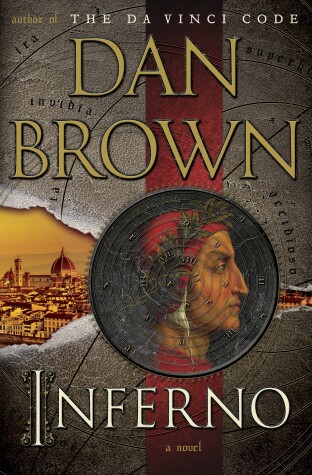Reviewed by clq on
But it is really good fun.
Sure, it doesn't take long for the book to turn into the standard Dan Brown game of cat and mouse. Fortunately, that seems to kind of be his thing, and the book makes for an incredibly entertaining game of cat and mouse. The story revolves around The Divine Comedy, a 14th century work by Dante and, surprise, various pieces of art based on this work. This time it all begins with Mr. Langdon waking up in a hospital without being able to remember how he got there. It takes about one chapter for someone to start shooting at him, and everything escalates from there. It doesn't take long for the story to start moving at an incredible pace, and it's truly impressive how well the tension and drama is sustained for over 400 pages. As one would expect there is a good deal of general trivia about art, symbolism and so on, but only just enough for the atmosphere and tone of the story to be maintained, without distracting from or breaking the pace of the actual events that are taking place.
The characters are no less shallow than they need to be to play their part in the story, but honestly, who cares about the lack of character development? Who cares if a bunch of really intelligent people happen to not figure out something trivial until the story calls for it? Who cares if super-elite-infallible-organisation(tm) happens to repeatedly make mistakes when it suits the narrative? That's not the point. Anyone picking up this book seeking intricate relationships, character development, and elaborately constructed sub-plots should (and probably do) know better. Inferno is as formulaic and typical as anyone would hope, anticipate, or fear that it is. Regardless of what one might think of the formula, it is followed with great success. Inferno is certainly more entertaining than The Lost Symbol, and I think it might just have overtaken Deception Point to become my new favourite Dan Brown book.
Is this a book I will still be thinking about three days from now? Probably not. Of course, the book ends on the usual pseudo-political food-for-thought kind of note which ties up the story nicely. It works well as the end of the story, and as ten seconds of brain fodder while staring into space. Otherwise Inferno fits well into the category of books that are like firework-displays. It's great while it lasts, intense and colourful enough to make you go "oooooh", and has plenty of loud bangs. Then it is gone, and you realise that it might all have been a bit pointless. Maybe it is all a bit pointless. There is certainly more than enough about this book to dislike and criticise. However, if one is fortunate enough not to care too much about any of its flaws, Inferno is good fun.
Really good fun.
Reading updates
- Started reading
- 30 May, 2013: Finished reading
- 30 May, 2013: Reviewed
